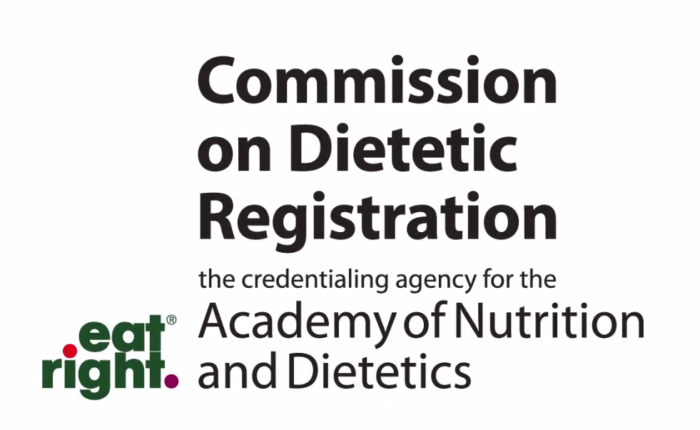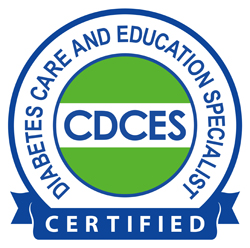
Credentials
Credentialing matters.
Proper credentialing reduces the risk for medical errors, increases patient safety, safeguards appropriate reimbursement, and improves an organizations reputation. My credentials ensure I have the proper training and experience to work with you and your patients.
What is a Registered Dietitian Nutritionist?
A registered dietitian nutritionist (RD or RDN) is a food and nutrition expert that is nationally-credentialed as the authority on nutrition. Registered dietitians are regulated healthcare professionals licensed to assess, diagnose, and treat nutritional problems. Registered dietitians work in a wide variety of employment settings, including healthcare, industry, public health, education, research and private practice. Every registered dietitian is a nutritionist – but not every nutritionist is a registered dietitian.
What is a Certified Diabetes Care and Education Specialist?
A Certified Diabetes Care and Education Specialist (CDCES) – formerly known as a CDE – is a healthcare professional who possesses comprehensive knowledge of and experience in diabetes prevention, prediabetes, and diabetes management. A CDCES educates, supports, and advocates for people affected by diabetes, addressing the stages of diabetes throughout the lifespan. A CDCES promotes self-management to achieve individualized behavioral and treatment goals that reduce risks and optimize health outcomes. CDCESs have passed a rigorous exam to show they have this specialized knowledge.
What is Board Certified in Advanced Diabetes Management?
The Board Certified in Advanced Diabetes Management (BC-ADM) credential recognizes advanced expertise in diabetes management for licensed healthcare professionals such as dietitians, nurses, pharmacists, and physician assistants. It signifies proficiency in areas like medication management, including insulin adjustment, interpreting diagnostic tests, developing individualized care plans, and managing complex diabetes cases.
BC-ADM-certified professionals provide advanced, evidence-based care to improve outcomes for individuals with diabetes. Certification requires a minimum of 500 clinical practice hours, a valid license, and is maintained through continuing education or re-examination every five years.




